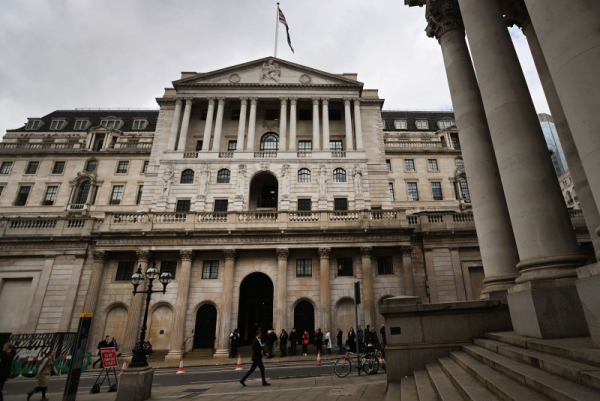

The Bank of England left its interest rates on hold at 4.25% at its Thursday meeting, though the bank has indicated that cuts are coming later in this year. Photo by Andy Rain/EPA-EFE
The Bank of England left its interest rates on hold at 4.25% at its Thursday meeting, though the bank has indicated that cuts were coming later in this year.
Six out of nine members of the bank’s monetary policy committee voted to keep the rates on hold, while the other three opted for a reduction to 4%.
“Underlying U.K. GDP [gross domestic product] growth appears to have remained weak, and the labor market has continued to loosen, leading to clearer signs that a margin of slack has opened up over time,” the central bank said in a statement.
“Measures of pay growth have continued to moderate and, as in May, the committee expects a significant slowing over the rest of the year,” it said, adding that the Monetary Policy Committee “remains vigilant about the extent to which easing pay pressures will feed through to consumer price inflation.”
The economy had a boost of 0.7% in the first three months, but shrank by 0.3% in April, showcased a cooling in the GDP. Unemployment rates increased and wage growth slowed.
The committee expects energy prices to rise due to the conflict in the Middle East, but then as wage growth weakens, they are expected to fall.
“The Middle East conflict complicates things further. Firstly, it could have an effect on oil prices which could push inflation up even further … and, secondly, it could be disruptive to the world economy and to trade, which again would be a downward pressure on our growth, so that’s precisely where the bank is right now,” said John Gieve, former deputy governor of the Bank of England.
“The question was, ‘Should we cut now or wait a little bit?’ That was the way they were looking at it,” he added.
“What the bank and markets are expecting is that interest rates will edge down to 4% or perhaps a little bit lower the rest of the year unless there’s a really big development on the world stage, but we don’t know how this conflict in the Middle East will play out, and we don’t know how tariffs … are going to play out.
So, Bank of England policymakers are going to have to watch things month by month.” said.
U.K. inflation had decreased 0.1% from April to May, but the cost of food showed an overall increase.